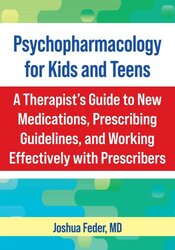
×

All members of the PESI, Inc. planning committee have provided disclosures of financial relationships with ineligible organizations and any relevant non-financial relationships prior to planning content for this activity. None of the committee members had relevant financial relationships with ineligible companies or other potentially biasing relationships to disclose to learners. For speaker disclosures, please see the faculty biography.
NOTE: Tuition includes one free CE Certificate (participant will be able to print the certificate of completion after passing the online post-test (80% passing score) and completing the evaluation). Instructional methods will include PowerPoint, didactic lecture, and others.
Continuing Education Information: Listed below are the continuing education credit(s) currently available for this non-interactive self-study package. Program content is reviewed periodically per accrediting board rules for currency and appropriateness for credit. Credit approvals are subject to change. Please note, your licensing board dictates whether self-study is an acceptable form of continuing education, as well as which credit types are acceptable for continuing education hours. Please refer to your licensing board's rules and regulations. If your profession is not listed, please contact your licensing board to determine your continuing education requirements and check for reciprocal approval.
For other credit inquiries not specified below, please contact info@pesi.com or 800-844-8260 before purchase.
Materials that are included in this course may include interventions and modalities that are beyond the authorized practice of your profession. As a licensed professional, you are responsible for reviewing the scope of practice, including activities that are defined in law as beyond the boundaries of practice in accordance with and in compliance with your profession's standards.
For Planning Committee disclosures, please see the statement above. For speaker disclosures, please see the faculty biography.
Earn up to 2.0 CE hours. Please see below, for more details, as credit amounts vary by jurisdiction and profession.

PESI, Inc., #1062, is approved as an ACE provider to offer social work continuing education by the Association of Social Work Boards (ASWB) Approved Continuing Education (ACE) program. Regulatory boards are the final authority on courses accepted for continuing education credit. ACE provider approval period: January 27, 2023 - January 27, 2026. Social workers completing this course receive 2.0 Clinical continuing education credits.
Course Level: Intermediate Format: Recorded asynchronous distance. Full attendance is required; no partial credits will be offered for partial attendance.
Canadian Social Workers: Canadian provinces may accept activities approved by the ASWB for ongoing professional development.
PESI, Inc. is approved by the Canadian Psychological Association to offer continuing education for psychologists. PESI, Inc. maintains responsibility for the program. This program is approved for 2.0 self-study continuing education hours. Full credit statement at: www.pesi.com/cpa-statement
This self-study activity qualifies for 2.0 continuing education clock hours as required by many national, state and local licensing boards and professional organizations. Save your activity advertisement and certificate of completion, and contact your own board or organization for specific requirements.
| File type | File name | Number of pages | |
|---|---|---|---|
| Manual - Psychopharmacology for Kids and Teens (894.9 KB) | 19 Pages | Available after Purchase | |
| Illinois Educators Self-Study Instructions (15.4 KB) | 1 Pages | Available after Purchase | |
| Illinois Educators Evaluation Form.pdf (1.2 MB) | 1 Pages | Available after Purchase | |
| Instructions for ASHA credit - Self-Study Only (64.4 KB) | Available after Purchase | ||
| Manual - Psychopharmacology for Kids and Teens - French (894.9 KB) | 19 Pages | Available after Purchase | |
| Manual - Psychopharmacology for Kids and Teens - Italian (894.9 KB) | 19 Pages | Available after Purchase |

Dr. Joshua Feder is a child and family psychiatrist in Solana Beach, California and medical director at Positive Development, providing affordable developmental relationship-based support for autistic children and their families nationwide. He is the father of an autistic son and the son of an autistic father. Dr. Feder cowrote the first American Academy of Child and Adolescent Psychiatry, Practice Parameter on the Assessment and Treatment of Autism Spectrum Disorder, and serves as editor in chief at the Carlat Child Psychiatry Report. Dr. Feder teaches and conducts research with UCSD, SDSU, and Fielding Graduate University. Dr. Feder helps run the Autism Is inclusion program, the only active antibullying program certified by the state of California Department of Education. He is the author of several acclaimed books, including, Prescribing Psychotropics and The Child Medication Fact Book for Psychiatric Practice, Second Ed. Many of Dr. Feder’s podcasts and lectures can be found online at www.joshuafedermd.com
Speaker Disclosures:
Financial: Dr. Joshua Feder maintains a private practice and has employment relationships with Positive Development, The Carlat Child Psychiatry Report, Quicksilver Software Company, Interdisciplinary Council on Development and Learning, Profectum, Beyond Imagination, and Fielding Graduate University. He is a grant reviewer for Organization for Autism Research and the National Foundation for Autism Research. Dr. Feder receives a speaking honorarium from PESI, Inc. He has no relevant financial relationships with ineligible organizations.
Non-financial: Dr. Joshua Feder serves on the American Academy of Child and Adolescent Psychiatry committee and is a programmatic lead for the International Network for Peach Building with Young Children. He is a member of the Autism Society of America, the National Foundation for Autism Research, and the World Association of Infant Mental Health.
Access never expires for this product.
For a more detailed outline that includes times or durations of time, if needed, please contact cepesi@pesi.com
Visit our FAQ page at https://www.pesicanada.com/faq or contact us at https://www.pesicanada.com/contact-us
Satisfaction Guarantee
Your satisfaction is our goal and our guarantee. Concerns should be addressed to info@pesicanada.com.
Please wait ...